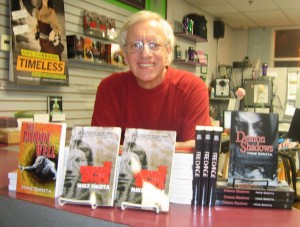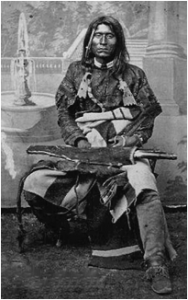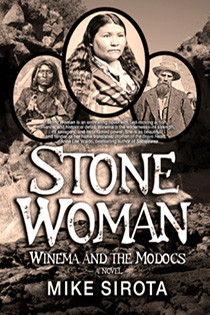I managed to nab the URL of mikesirota.com a long time ago, and ever since then it has connected people to my Mike Sirota Writing Services website. That time has come to an end, as I’ve officially retired from coaching writers, and evaluating/editing manuscripts. (Yay!)
 Why now? Well, for starters, next year will be the last one in which I can still say I’m “in my sixties.” There is preservation of eyesight to consider after reading a million manuscripts in recent decades. And last of all is something that we should all take to heart. On my deathbed would I say, “Gee, I wish that I’d evaluated one more manuscript”? Hell no. There are a lot more important things that I would choose to do if I only had one more day.
Why now? Well, for starters, next year will be the last one in which I can still say I’m “in my sixties.” There is preservation of eyesight to consider after reading a million manuscripts in recent decades. And last of all is something that we should all take to heart. On my deathbed would I say, “Gee, I wish that I’d evaluated one more manuscript”? Hell no. There are a lot more important things that I would choose to do if I only had one more day.
But I hated to give up that URL, and as it turned out, I didn’t have to. As you’ll see, mikesirota.com now connects you to my shiny new website, “Swords & Specters: The Novels of Mike Sirota.” There is also a link on it to my totally re-mastered blog—something you’ve already noticed as of today.

Indy Quillen
Kudos go out to my web guru and long-time friend, Indy Quillen of Media Fastlanes, and hubby Mike, for designing the new site. You can learn a lot more about Indy and her services at mediafastlanes.com Also, check out her blog at indyquillen.com
While my new website contains some of the features that were previously found on my Swords & Specters site, there is so much more. I’ve included vignettes explaining how I came to write the stories in each of the multiple genres in which I’ve been published. In addition, there are either full sample chapters or shorter scenes for every one of my novels. So please, check it out—and let me know what you think.
A DARK ANNIVERSARY
November 29th, which arrives later this week, marks 142 years that the first shot was fired in what would come to be known as the Modoc Indian War. I dramatized the scene in my new novel, Stone Woman. Here is a portion of that scene. For context, U.S. Cavalry troops have just stormed into the Modoc tribe’s twin villages to confront Captain Jack, the chief, and relocate the tribe to a reservation.
Captain Jack and five braves met Scarfaced Charley. All carried guns. Jack ordered the rest of his people to remain in their lodges. In Nakosh Hooker Jim, Bogus Charley and others lined the east bank to see what was happening.
“It has finally come,” Jack said quietly.
“You will talk to them?” Scarfaced Charley asked.
Jack nodded. “They will have to start this fight.”
Boston Charley said, “These pony soldiers look like they have already been in a war.”
Jack had never seen Captain Jackson. The officer, an imposing man, rode up to the chief. “You’re the one they call Captain Jack?” he asked.
“Yes.”

Captain Jack
Jackson pulled out the Interior Department’s official document and read it. Ivan Applegate translated some passages. The formalities seemed stupid, for everyone knew why the soldiers were there.
When he was finished Jackson asked, “Will you comply with this order?”
“We will not leave here,” Jack said.
“You have no choice. I will give you one hour to prepare, then you must come with us.”
“We will not leave here,” Jack repeated.
The ensuing discussion of twenty minutes resembled many prior fruitless powwows. As they talked, the civilians on the other side reacted when they saw Hooker Jim taking guns from his lodge. “Let’s get that boy!” One-Arm Brown said.
“Wait!” Oliver Applegate cried. “You damn fools—”
Brown and a few others charged into Nakosh. Applegate passed them, jumped from his horse and began shaking hands with the Modocs.
“Everything is all right,” he said. “They are talking things out now. You stay calm.”
He found his reservation Modocs and ordered them to Yainax. They left quickly, glad to be away from whatever was going to happen.
The brief action had diverted the attention of those in Wachamswash. Before Jackson and Captain Jack could start again, Schonchin John said, “You think you make us go back with this few men?” He indicated the haggard row of troopers sitting nervously on their mounts.
Boutelle said, “What makes you so sure this is all?”
Jack and his men retreated ten yards. “We might be surrounded,” he said. “I did not think the basdin stupid enough to come with a force such as this.”
“What will we do?” Schonchin John asked.
The soldiers were not about to give them time to powwow. “I want you to lay down your weapons right now!” Jackson ordered.
Captain Jack and the others took a couple of steps forward. For a moment it appeared as if they might obey. But Scarfaced Charley and Black Jim retreated toward the river.
Boutelle glared at Scarfaced Charley. “Here, put down your gun, you damned redskin.”
“You no get Charley’s gun,” the Indian said.
“Captain, they’re going to fire!” Boutelle cried. “Men, shoot over their heads.”
The time between Boutelle’s first shot and that of Scarfaced Charley could not be measured. Boutelle’s bullet tore a hole in a loose end of a bandanna worn around the Indian’s head. Charley’s bullet pierced the sleeve of Boutelle’s coat.
A score of braves poured from the lodges of Wachamswash to engage Troop B, 1st Cavalry. The soldiers returned their fire, some from horseback, others kneeling. The river basin became a bloody arena as the men of Fort Klamath fought the Modocs at close quarters.
Across the river Oliver Applegate and the civilians, under fire from Hooker Jim’s men, retreated to Crawley’s cabin, where they fell under siege. Jack Thurber was killed. Hooker sent a few braves to help the chief. One of them, an old warrior called Watchman, fell to a bullet on the east bank. He died a few moments later.
The retreat of the women, children, and elders added to the bedlam. They raced for canoes on the bank, launched them into the current and paddled for the mouth of Tule Lake, not far downriver. With them were a couple of wounded braves, and an injured woman whose infant son had been shot to death in her arms.
In the rain of bullets that went on for long minutes, eight soldiers fell. One died immediately, a second shortly after.
Captain Jack and his men quickly expended their rounds, for most of their armament was somewhere else. Satisfied their  families had made it safely down the river, they scattered toward the west into the sage and lava hills. Eventually they would turn south and skirt the western shore of Tule Lake. Rather than pursue them, Jackson ordered his men across the river to prevent the massacre that seemed likely at Crawley’s cabin. Two soldiers remained in Wachamswash to set fire to the lodges. In one a woman, who had been ill and bedridden, was burned to death.
families had made it safely down the river, they scattered toward the west into the sage and lava hills. Eventually they would turn south and skirt the western shore of Tule Lake. Rather than pursue them, Jackson ordered his men across the river to prevent the massacre that seemed likely at Crawley’s cabin. Two soldiers remained in Wachamswash to set fire to the lodges. In one a woman, who had been ill and bedridden, was burned to death.
Another settler, William Nus, was killed by Hooker Jim, a man named Penning wounded, before the Indians, seeing Jackson’s charge, sped off eastward. “We’ll hunt the bastards down!” Boutelle cried.
“Let it be, Lieutenant,” Jackson said. “We won’t catch them now.” He indicated the wounded. “We have enough to do here. You keep an eye out, in case any come back.”
Dr. McElderry had already gotten down to work. Soon the rain, which had stopped, began anew and doused the smoldering remnants of the lodges in Wachamswash and Nakosh. Soldiers erected a makeshift tent for the surgeon.
Early on November 29, 1872, within a matter of fifteen minutes, the bloody Battle of the Lost River had been fought. The U.S. government’s war with the Modoc Indians had begun.

Thanks for the shout-out Mike. You know how much I enjoy anything with a Native American theme, and it sounds like you’ve certainly done your research on this one! I’m very much looking forward to reading Stone Woman!
Thank you back for the neat website/blog. Enjoy reading my doorstop novel! 🙂